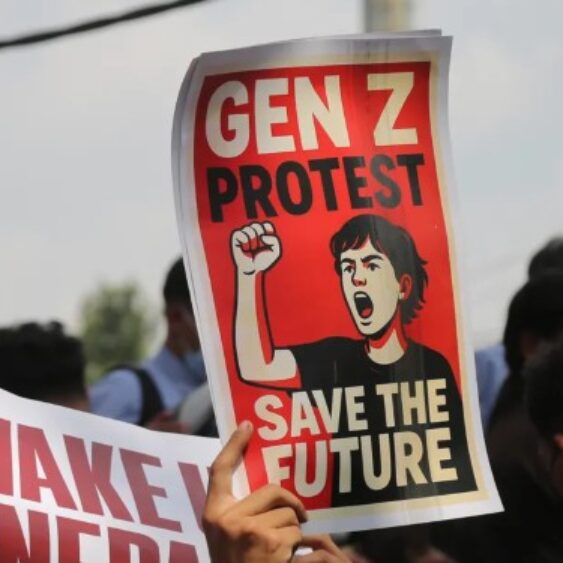A new wave of political movements without any so-called ideological underpinning except for deafeningly noisy demands for basic citizens’ needs and livelihoods is sweeping across the world from the Andes to the Himalayas. After Nepal, the Philippines, Indonesia, Bangladesh, Kenya, Peru and Morocco, it is the turn of the Gen Z of Madagascar to erupt in protest against corruption and nepotism by the ruling regime, forcing its President Andry Rajoelina to flee the country. The political contagion is spreading fast, engulfing one country after another from Asia to Africa.
Gen Z, which is the first generation to have grown up in the age of the internet, is at the forefront of anti-government protests in several countries in the Global South. They appear to be part of a broad movement throwing conventional politics out of gear from Nepal in early September. The latest manifestation of this form of social unrest is in the African island country of Madagascar. These movements are driven by tech-savvy youngsters who are rebelling against inequality, corruption at high offices, nepotism and criminal neglect of bread-and-butter issues of the common man. Madagascar’s protest movement began on social media under the banner “Gen Z Madagascar.” This is an informal group composed mainly of young people and students who claim to be peaceful and civic-minded. Though young people represent the overwhelming majority of the country’s population, two-thirds were under 30 in 2023 – Gen Z has never before taken such an active part in the political protest movement there. This is unprecedented and marked by its spontaneous and decentralised nature. While past mobilisations were led or co-opted by political parties, unions or charismatic figures, this one stems from collective outrage, mainly in digital spaces and grows without a single leader. This is its speciality- giving it a new symbolic power because it does not aim to seize power, but is propelled by the demand for a livable future. The movement has overthrown two regimes in Nepal and Madagascar.
Perhaps it is no coincidence, but an inevitable consequence of eruption of the wrath of the youth that both the Prime Minister of Nepal KP Sharma Oli and Madagascar President Rajoelina have had to flee their respective countries to escape the fury of youth. The most telling example cited by the protesters of Madagascar in their online pages is the image of the eldest member of the Rajoelina family, who graduated from a Swiss hotel school costing 150,000 per year, while two-thirds of Madagascar’s population live on less than two dollars a day. Wasteful public spending is a common theme motivating the young protesters in all the countries witnessing the novel phenomenon. In Madagascar, the costly Antananarivo cable car – one of the government’s key infrastructure projects deemed completely unsuited to the needs of the population – has triggered the movement of the youth.
Also Read: Historic Deal
In Morocco, protesters are focusing on the huge sums spent on renovating several football stadiums for the Africa Cup of Nations and the 2030 World Cup. The Gen Z of the country argues the huge funds could have gone to public services such as education and healthcare. Gen Z may not yet have a formalised political agenda. But it has already changed political discourse. The central theme of the new political debate is no longer on the question of surviving in a failing system, but of radically transforming it. This does not appear to be a passing revolt, but a profound generational change. The young Gen Z protesters do not seem to care for any “ism” that falls into disuse after some time. They are bringing up issues of basic needs and services such as food, shelter, clothing, education and health services while fighting against corruption and systemic rot. Any attempt by established political parties to capture power by promising to cater to those needs only to amass wealth for themselves, their kith and kin and cronies is being resisted with force that sometimes turns brutal.
Politicians across the globe are put on notice now by Gen Z which has turned the world into a village with their digital reach. Perform or perish – a mantra of the exploitative corporate world – is emerging as a slogan for this brand of youth politics. The absence of a leader or political organisation and a fixed agenda could be its main strength and not weakness.
